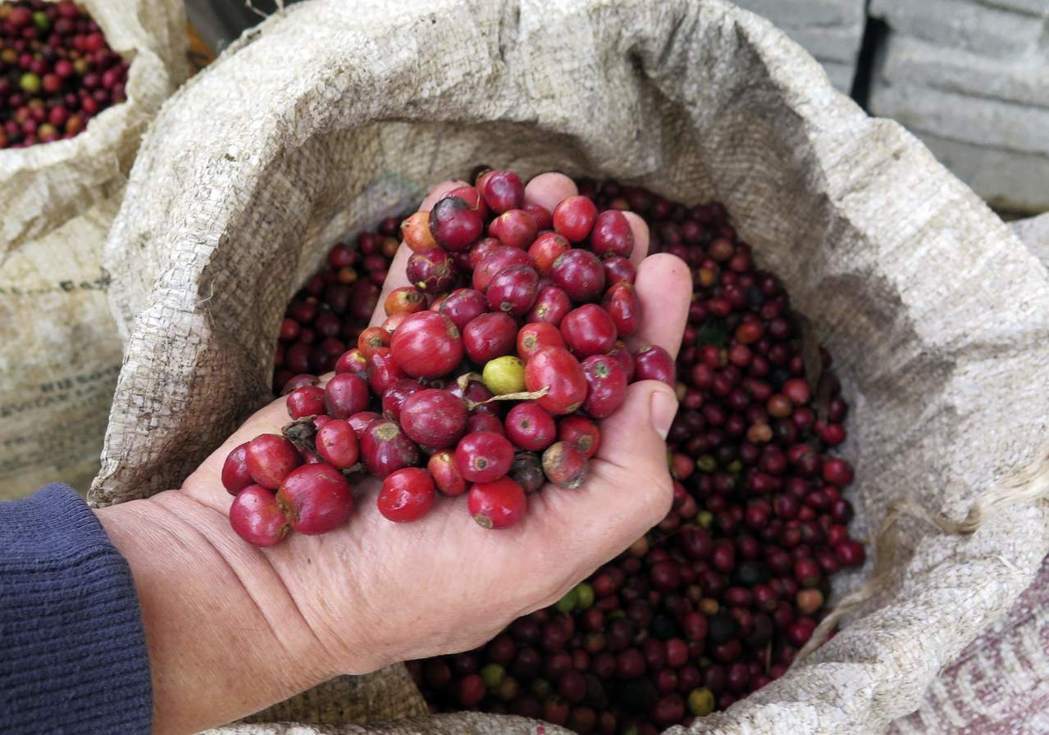Suntanned Soul of La La Haas Manor in Costa Rica Flavor Coffee Bean Flavor and Taste description

For professional baristas, please follow the coffee workshop (Wechat official account cafe_style)
Las Lajas Estate Alma Negra
Country: Costa Rica
Product name: black Soul of La Lajas Manor
Producing area: central valley
Grade: SHB
Treatment: insolation
Altitude meter
Variety: Caturra & Catuai
Flavor description:
Bordeaux honey, pineapple, cider vinegar, wine stains cherry, cream, fermented wine rich and long
The Black Soul of La Lajas Manor
In the exquisite sun and honey treatments that are now quite popular in Costa Rica
La Lajas Manor is one of the earliest manors to carry out systematic research and treatment.
It has been a favorite coffee farm for global buyers for many years.
La Lajas Manor is currently owned by Francesca, the third-generation owner of the manor.
(Francisca Cubillo)
Co-operated with his wife Oscar
The manor is located in the Central Valley producing area (Central Valley) not far from the capital.
Quite close to Poas Volcano Volcano
The altitude is between meters, and the annual output is about 55200 kilograms.
Many years ago, Francesca, the owner of the estate,
I have been hoping to improve the flavor of the coffee in the manor.
At that time, the vast majority of coffee farmers in Costa Rica
The traditional washing method is generally adopted.
To supply demand in the United States and Europe.
So the landowner began to study
And improve a lot of equipment in the manor in order to
More in line with the needs of tanning and honey-treated coffee.
In the harvest stage, the landowner uses the sweetness detector (BRIX) to screen to achieve
Standard coffee red fruit
At the same time, set up its own washing treatment station for coffee treatment.
Finally, it is placed on the African scaffolding for subsequent exposure.
In the coffee at the Laslajas manor.
The landowner uses honey treatment and sun-dried coffee
The expression of flavor is divided into many different items.
In the case of honey treatment, farmers in Costa Rica
For the most part, the amount of residual pulp is controlled by the peeling machine at the water washing station.
But Laslajas Manor decided to take a different approach.
That is, to retain the highest proportion of 100% of the flesh.
But control the time of exposure and turning on the African scaffolding to show different coffee flavors.
In the honey treatment, the manor owner divides the coffee into yellow honey, red honey and black honey.
Yellow honey treatment:
After removing the pericarp, the peel was placed on the African scaffolding in the early morning.
And immediately proceed to flip.
Red honey treatment:
After removing the pericarp, the peel was placed on the African scaffolding in the early morning.
It didn't turn until after noon.
Black honey treatment:
After removing the pericarp, the peel was placed on the African scaffolding in the early morning.
It didn't turn until after the afternoon.
As for the rule of sun treatment, it is treated by the way of shading with plastic cloth.
Produce many more detailed flavors to show the black pearl:
The red fruits of the harvested coffee were placed on the African scaffolding in the early morning.
And turn regularly and expose to the sun until the moisture content is 11.5%.
The whole process will take about two weeks.
Black Soul: the red fruits of the harvested coffee are placed on the African scaffolding in the early morning.
Turn regularly one day for exposure to the sun.
Leave the plastic cloth under shade until the moisture content is 11.5%.
The whole process takes about three weeks.
At the same time, the manor owner strictly requires all processes in the manor's fertilizing materials.
All need to be planted and fertilized according to organic standards.
The whole manor uses organic compost.
At the same time, organic standards are extended to include soil, shade trees and washing plant procedures.
After years of hard work, the Ras Lajas Manor
Has passed the Japanese JAS, American USDA and NOP organic certification.
Everyone's taste is not necessarily what they like.
You can consider buying a small amount and trying different baking degrees.
Soy beans in an explosion
Drop the beans at the end of the explosion.
Drop the beans from the end of the first explosion to the second explosion.
Touch the beans under the second explosion.
Put the beans into the second explosion for 10-15 seconds
The second explosion of dense beans
I hope you bakers can find a more favorite flavor.
*
There's something I need to explain to you.
Coffee beans are agricultural products.
Will vary a little from year to year due to climate change.
If you feel a little different, please forgive me!
Consider other coffee beans next time.
*
The greener the appearance of raw beans, the more moisture.
During the baking process, if the temperature drops too low during an explosion, it may not be cooked enough.
It is recommended to reduce moisture before baking (can be insolated for a few days or use a dehumidifier)
The more whitening parts, the less moisture.
*
Some coffee beans are emerald green and have more flavor after baking.
Some are whitening and taste better after baking.
There are many skills in the baking process.
The same degree of baking but different curves of time and temperature
The taste is also slightly different, and everyone's favorite flavor is not necessarily.
You can try different baking degrees to see which one you prefer.
Important Notice :
前街咖啡 FrontStreet Coffee has moved to new addredd:
FrontStreet Coffee Address: 315,Donghua East Road,GuangZhou
Tel:020 38364473
- Prev

Description of the flavor and aroma of coffee beans washed by hummingbirds at the San Ruman treatment Plant in Costa Rica
Professional barista communication please follow coffee workshop (Wechat official account cafe_style) Coffee production area: Tarrazu Coffee Variety: Caturra.Catuai Annual rainfall: 2000 mm Classification Standard: SHB Annual temperature: 19 degrees C treatment method: washing Bean Specification: 17-18 mesh planting altitude: 1700m soil species: volcanic soil Costa Rica Saint Ruman treatment Plant Hummingbird
- Next

Colombia Cauca Superior Cup Tambo Microbatch Coffee Bean Flavor Taste Aroma Description
Colombia Best of Cauca Regional Select El Tambo Flavor Description: Sweet and juicy black plum and dark berry aromas in the front, purple grape juice and mulberry juice in the middle, sour and sweet feeling in the mouth
Related
- Detailed explanation of Jadeite planting Land in Panamanian Jadeite Manor introduction to the grading system of Jadeite competitive bidding, Red bid, Green bid and Rose Summer
- Story of Coffee planting in Brenka region of Costa Rica Stonehenge Manor anaerobic heavy honey treatment of flavor mouth
- What's on the barrel of Blue Mountain Coffee beans?
- Can American coffee also pull flowers? How to use hot American style to pull out a good-looking pattern?
- Can you make a cold extract with coffee beans? What is the right proportion for cold-extracted coffee formula?
- Indonesian PWN Gold Mandrine Coffee Origin Features Flavor How to Chong? Mandolin coffee is American.
- A brief introduction to the flavor characteristics of Brazilian yellow bourbon coffee beans
- What is the effect of different water quality on the flavor of cold-extracted coffee? What kind of water is best for brewing coffee?
- Why do you think of Rose Summer whenever you mention Panamanian coffee?
- Introduction to the characteristics of authentic blue mountain coffee bean producing areas? What is the CIB Coffee Authority in Jamaica?

